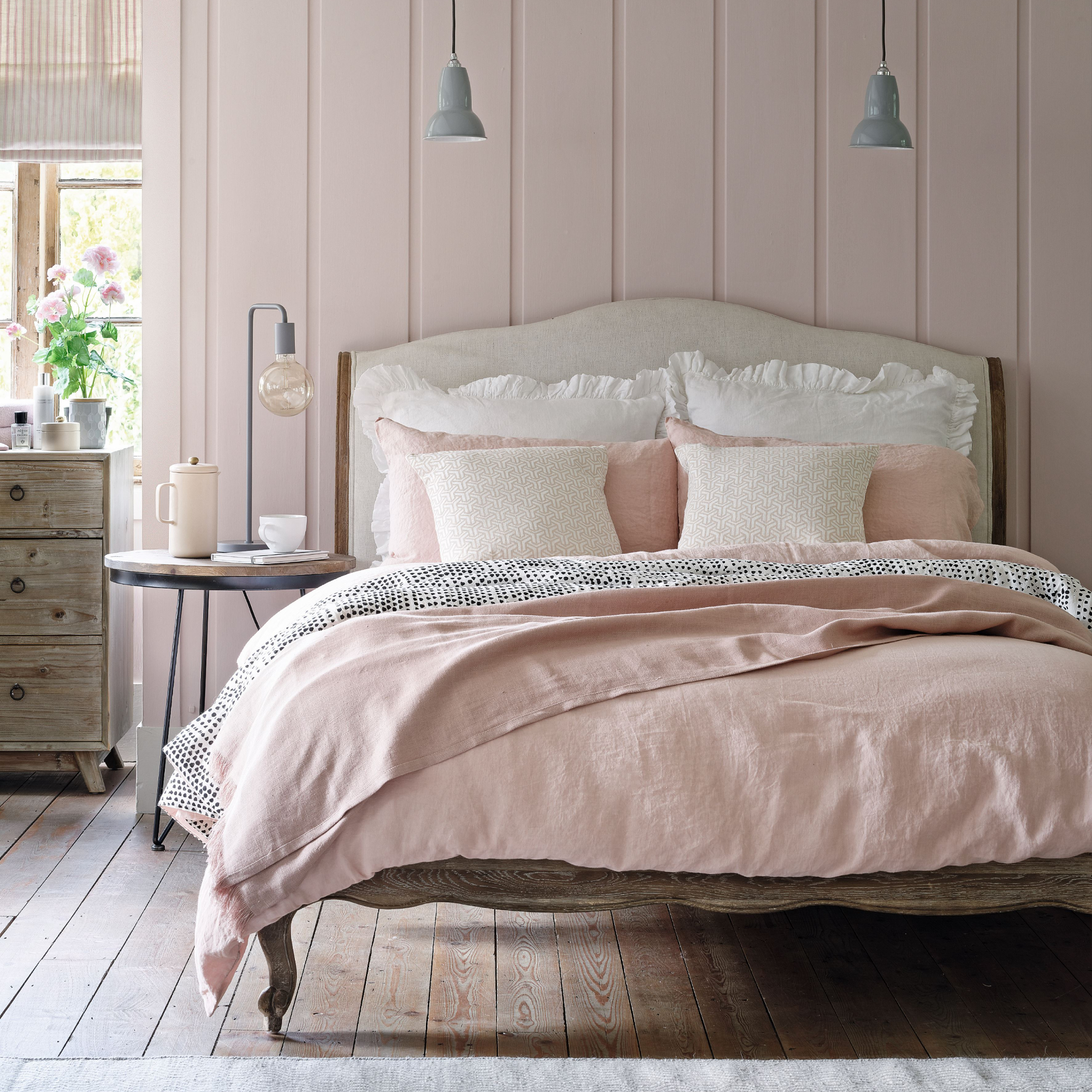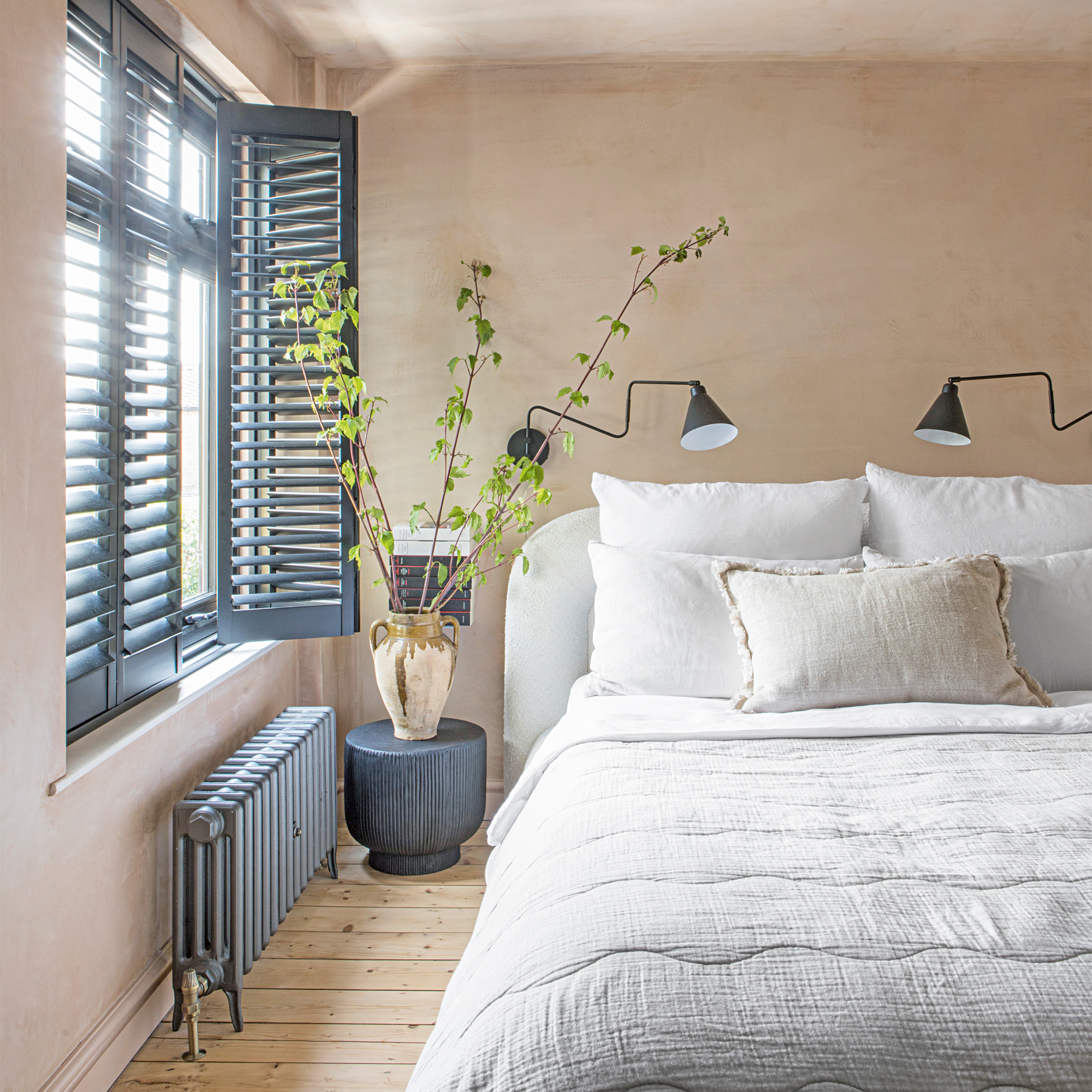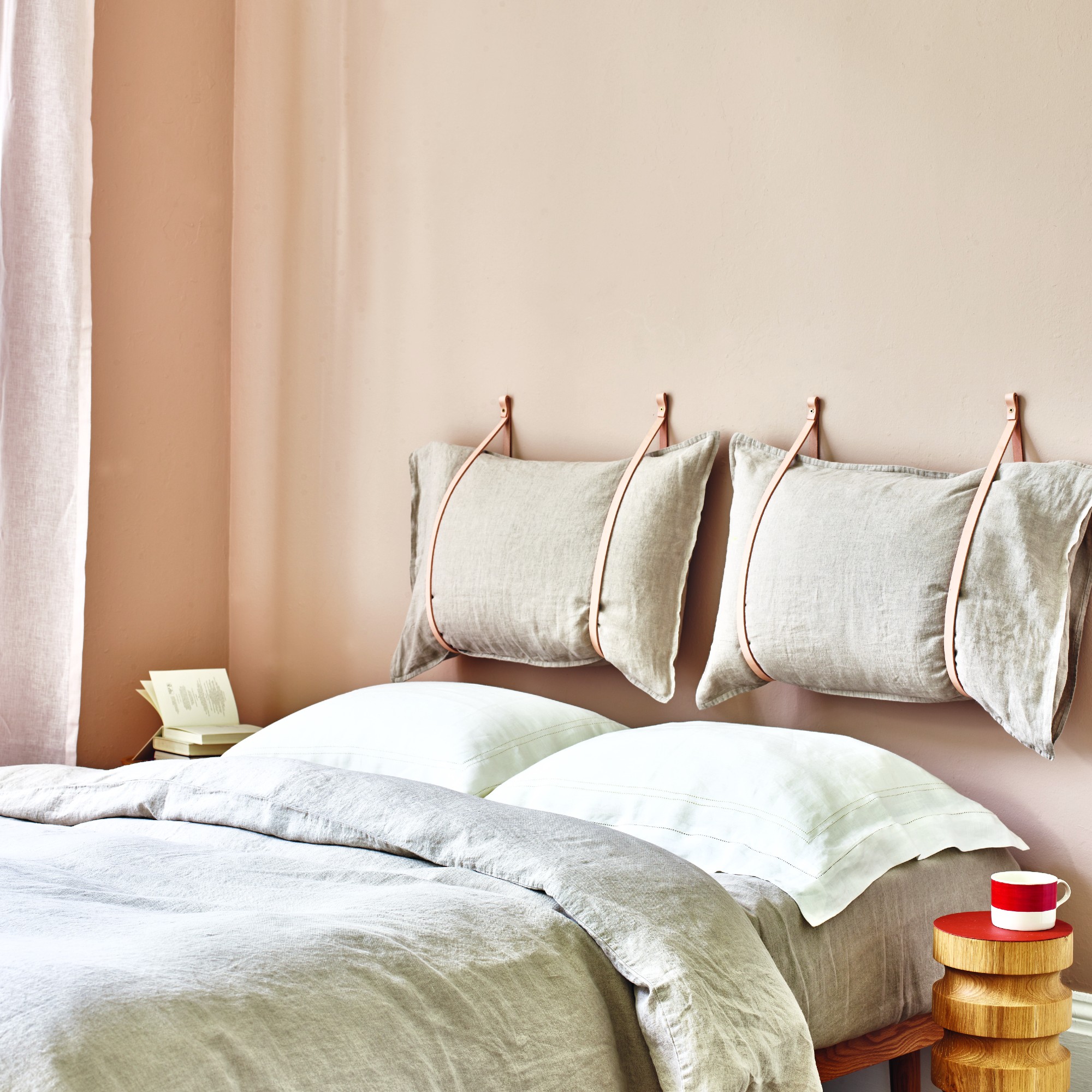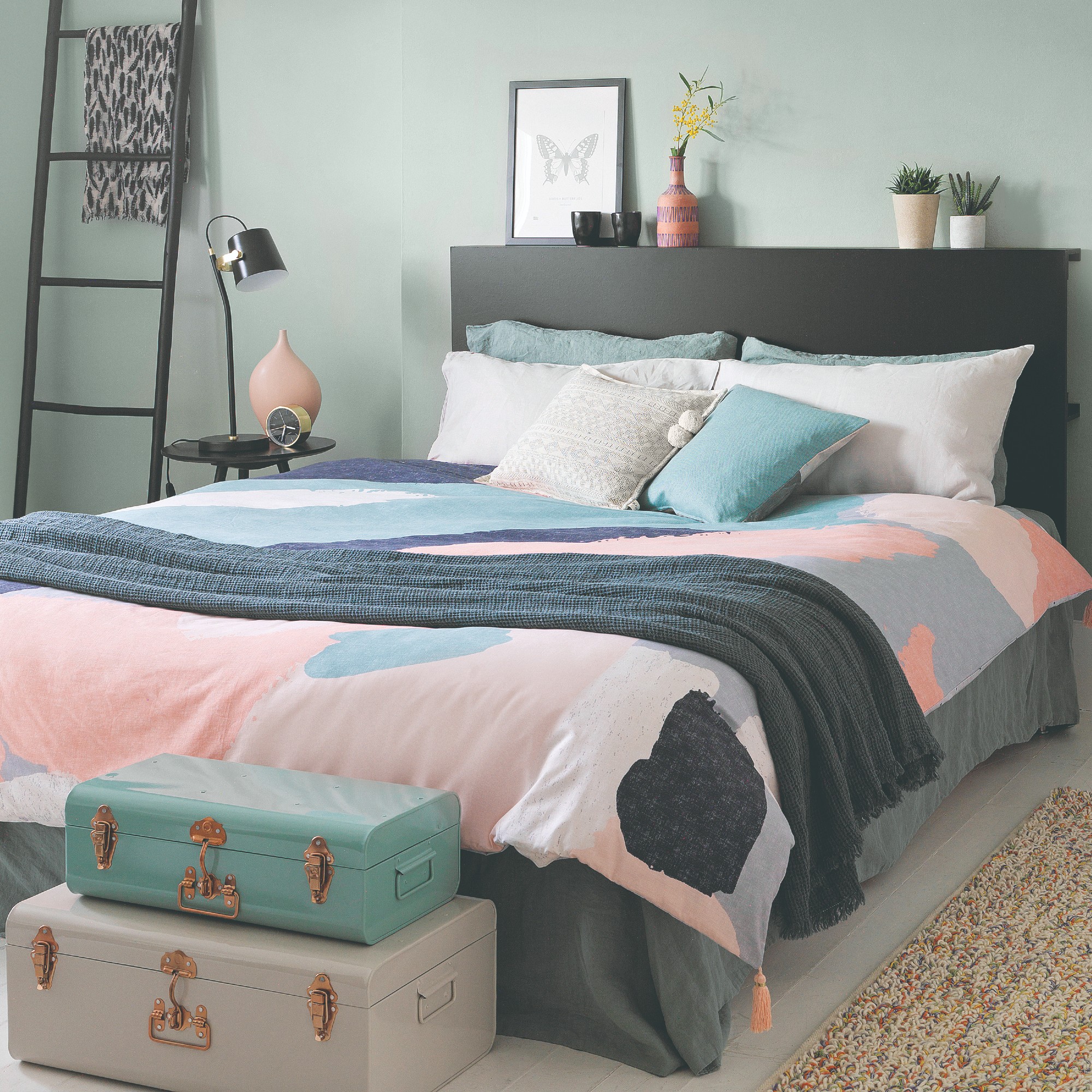Is an expensive mattress worth it? I've tested mattresses at both ends of the price spectrum and this is what I've found
Mattresses can vary from £400 to £4,000, but will that extra zero really deliver a better nights sleep?


If you’re looking for a new mattress and have broken out into a cold sweat once you’ve clocked the prices, we’ve got you. You might be wondering if the difference between a £400 and £4,000 mattress is really justified – and why. Having tested plenty of mattresses at all price points thoroughly, I'm well placed to do a deep dive on the subject.
The best mattresses don’t necessarily have to cost the earth. 'The most important thing is finding a mattress that provides you the right level of support and comfort to help you get the best night’s sleep,' says Laura Tudor, Bedroom Furniture, Filled Bedding and Mattress buyer at John Lewis & Partners.
But it’s hard to ignore the siren’s call of an expensive mattress that (in your head at least) promises unparalleled sleep and well-being. And, to a certain point, splashing the cash on your mattress is a sound investment. A good night’s sleep is vital to your physical and mental well-being. But sadly we aren’t all millionaires, so where should we be putting our money?
Is an expensive mattress worth it?
Our top-rated mattress at Ideal Home is the Simba Hybrid Original mattress, which is £999 for king size. In our thorough testing, the Simba beat the Brook & Wilde Ultima, which weighs in at £1,700. So it goes to show, price isn’t the be-all and end-all.
Rather than solely looking at price tags to decide which mattress is best, you’re better off looking at comfort. 'Comfort will vary from customer to customer based on their weight and the way they sleep,' says Laura Tudor, mattress buyer at John Lewis & Partners. 'Lots of people are surprised to learn that it’s not just a case of buying the most expensive option. Often more affordable ones are better suited to customers’ individual needs.'

Having said that, the heavy price tags often tell you a lot about how mattresses are made, and from what. Opting for a handmade mattress, or one that contains premium fibres like organic cotton, cashmere, wool and merino wool, is going to hike up the price. But for this big price tag you get a mattress that is made with honed skill and has luxurious fibres that can help with temperature regulation and, ultimately, help you sleep better.
So yes, comfort over price is the most important thing. But prices aren’t totally meaningless and, in the world of mattresses, there is an element of 'you get what you pay for.'
Sign up to our newsletter for style inspiration, real homes, project and garden advice and shopping know-how
What is the price range for mattresses?
You can get a king-size mattress for under £100. This is a great price point if you’re a student fed up with your landlord’s lumpy-mattress hell (been there), or you have a guest room that needs a new mattress. But with the best will in the world, a mattress at £75 is very unlikely to be the best mattress you’ve ever slept on.
At the other end of the spectrum, Simba’s most-premium mattress, the Ultra, is £3,199. Indeed, I’ve personally tested Brook & Wilde’s most premium “best ever” mattress, which currently retails for £2,400. John Lewis’ most expensive mattress is an eye-watering £8,799 at the time of writing – and that’s in the sale. There’s no need to spend this kind of money though, unless the mattress is absolutely right for you.
As you might expect, most mattresses sit in the middle between these price points. Having tested around 25 mattresses over the last few years, my current mattress is the Hypnos Wool Origins 8. It’s an incredible mattress and costs just less than £2,000. However, if that price makes you baulk, I’ve also slept on mattresses at half that price and found them fantastic too.

What is the difference between a cheap and expensive mattress?
So if you’re forking out a lot of money for a mattress, what are you actually getting for your money?
'The main differences between cheap and expensive mattresses lie in the materials and technologies used,' says Mary Love, Product & Sourcing Director at Simba. 'More expensive mattresses, like the Simba Hybrid Ultra and the Apex Mattress, incorporate a range of luxurious materials and advanced technologies that enhance comfort, support, and durability.'
Delving deeper, open-coil mattresses are cheaper than pocket-sprung mattresses. This is because pocket-sprung mattresses tend to be more tricky to make – the springs are all in individual pockets inside the mattress.
'This means the springs are able to work independently to provide targeted support for your body,' explains Laura Tudor, Bedroom Furniture, Filled Bedding and Mattress buyer at John Lewis and Partners. 'The number of springs within a pocket sprung mattress can vary greatly – with our current range of pocket sprung mattresses varying from 1,000-19,000.'

'Better-quality pocket springs are encased in calico pockets, hand nested in a honeycomb pattern and centre tied with linen cord,' explains Simon Williams of the National Bed Federation. 'Less expensive pocket springs are encased in fibretex or stitchbond fabrics and are lightly glued together in linear rows.' What does this mean for you in real terms? A more supportive mattress with a longer life span.
Can you get a good, cheap mattress that’s not going to fall apart as soon as you sneeze near it? It’s not impossible, of course. Your best bet though is to spend your money wisely – keep an eye out for mattress deals and sales. And spend as much as you can feasibly afford, as price is normally linked to quality in the mattress world.
What mattress features are worth paying more for?
Comfort is the order of the day above anything else. 'When it comes to falling asleep you need your mattress to be comfortable enough so that you are drawn to focusing on the experience of lying in bed, rather than focusing on the task of falling asleep,' says Dr Maja Schaedel, Co-founder and Director of The Good Sleep Clinic and clinical psychologist.
'If you find a mattress which you are excited to lie down on every night then this reduces the pressure to fall asleep which is essential for falling asleep without too much trouble,' says Dr Schaedel.
'Much depends on what the sleeper’s needs are,' says Simon Williams of the National Bed Federation. 'If it’s pressure relief for sore shoulders/hips then look to pay more for a mattress with layers of memory foam or latex foam. If [you] prefer hand-crafted luxury, look for pocket-sprung mattresses with layers of natural fillings.'
Essentially you’re looking for good quality and the right level of support for you. What that looks like will vary from person to person as comfort is so subjective. Before you commit, check you’re happy with the quality of your mattress and what’s inside it.

What is the most you should pay for a mattress?
Everyone’s budgets are different, so what you might not think of as a big budget will seem huge to someone else. And I’m not in the business of telling people to spend money they can’t afford. You also have to factor into your future spending that most mattresses have a lifespan of 7-10 years, so I’m afraid this is not a one-time purchase.
Spend what you can afford on a mattress to get what you want. For a double you probably want to budget around £400 at least, and the price increases with size. The £500-1,000 mark is generally a good place to be for a good king size mattress.
Final verdict - are expensive mattresses worth it?
Expensive mattresses - are they worth it? In terms of comfort and support, almost certainly. Those luxurious fibres, quality build and springy support are more likely to give you a better night sleep and last for longer.
However, that’s not to say shelling out £1,000s is the only way to get a good mattress. There are plenty of great mattresses at the mid price point too. Test mattresses to see what features matter to you. Make use of sleep trials and going into shops. And always look for deals on mattresses to ensure you get them at the cheapest prices.

Zoe is a freelance journalist and content strategist. Her career has traversed kids' publishing, women's lifestyle magazines, luxury property and content marketing. She's worked for the BBC, STYLIST, Marie Claire, heat, Wallpaper*, InStyle, The Sunday Times Style, Ocado, Christie's and more. She now regularly writes about interiors and sleep for a range of media – what she doesn't know about mattresses isn't worth knowing.